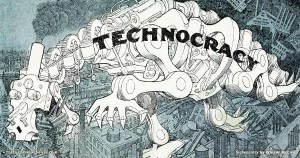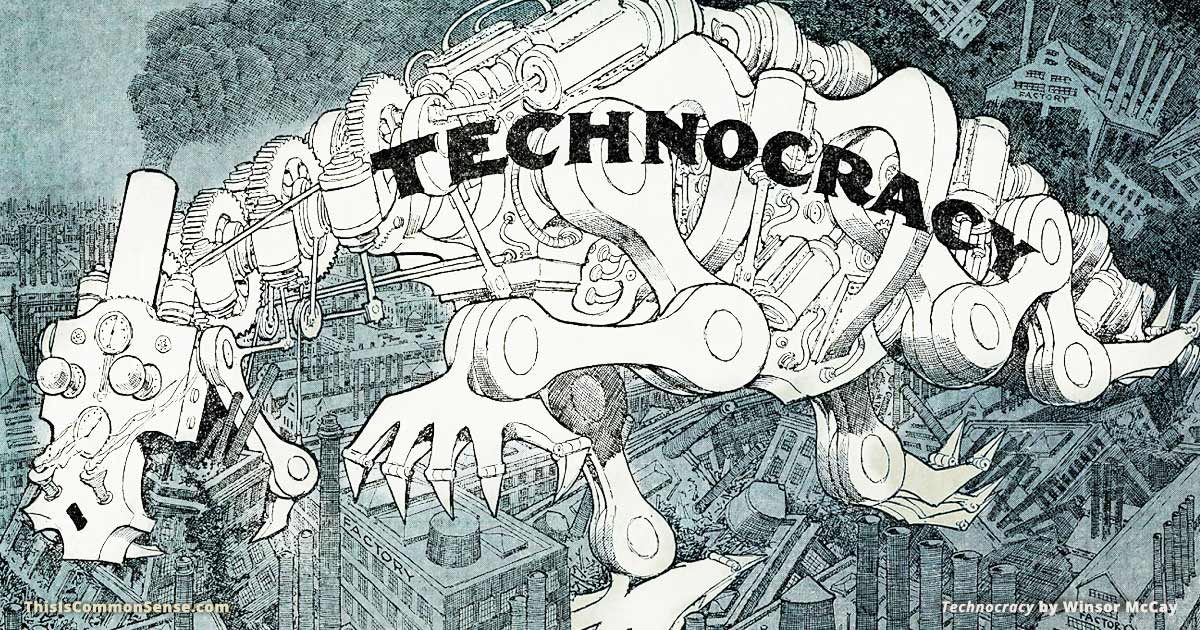On Sunday, at Townhall, I addressed the whining attacks on referendums and “democracy” that followed the Brexit referendum.
The most outrageous? A broadside from Jason Brennan.
“To have even a rudimentary sense of the pros and cons of Brexit,” argues this Robert J. and Elizabeth Flanagan Family Associate Professor of Strategy, Economics, Ethics, and Public Policy at the McDonough School of Business at Georgetown University, “a person would need to possess tremendous social scientific knowledge. One would need to know about the economics and sociology of trade and immigration, the politics of centralized regulation, and the history of nationalist movements.”
In other words, most Brits needn’t worry their pretty little heads about deciding their future; experts have everything under control.
Brennan has a new book coming out, Against Democracy, wherein he posits that we need “a new system of government — epistocracy, the rule of the knowledgeable.”
Sound familiar? ’Tis the old Platonic whine in new wineskins.
This Philosopher King is necessary, you see, because citizens don’t posses the advanced degrees to judge whether Brennan is right or wrong. We can’t even find a Holiday Inn Express in the phonebook. Or a phonebook.
Nonetheless, why not consult other known knowers?
The late William F. Buckley, Jr., well-educated and well-spoken on political matters, once declared that he would “rather entrust the government of the United States to the first 400 people listed in the Boston telephone directory, than to the faculty of Harvard University.”
“Incestuous, homogeneous fiefdoms of self-proclaimed expertise are always rank-closing and mutually self-defending, above all else,” warned journalist Glenn Greenwald, an expert on such hooey.
“I know no safe depositary of the ultimate powers of the society but the people themselves,” wrote Thomas Jefferson, “and if we think them not enlightened enough to exercise their control with a wholesome discretion, the remedy is not to take it from them, but to inform their discretion by education.”
Most decisions in a free society are thankfully made by individuals (not voters, bureaucrats, or academics) about their own lives.
But when legitimate decisions of governance must be made, I’ll take democracy over rule by experts.
This is Common Sense. I’m Paul Jacob.


9 replies on “The Return of the Philosopher King”
All of the elites support their power and advantage over the ordinary.
The most important point made by you in your article Paul was that the vast majority of decisions are individual, and therefore harm very few others if in error.
This is unlike empires, continental governments which have much wider concerns, such as nuclear arsenals and regional, if not world wars. I am not sure that is an advancement, or even a net some gain over history.
They are called ex-spurts, also known as drips, Jacks of Only One Trade and disasters when left to fend for themselves.
It’s my understanding, Paul, that Jason is not calling for only experts to vote, in the sense you describe experts. He is instead suggesting voting be restricted to the portion of the population that has demonstrated, via objective testing, a rudimentary understanding of basic political issues. Do you really want people who do not know what the Supreme Court is voting for the guy who determines who should sit on the Supreme Court?
Via objective testing? Who will test the testers?
The point, Paul, isn’t that there are no problems, such as the obvious one you note, regarding Brennan’s thesis. It’s that there are ALSO problems with democracy, something all libertarians are aware of. You apparently think Brennan’s epistocracy is unrealistic, and I admit it IS unusual for libertarian political philosophers to put forth unrealistic sounding political theories. I don’t want to say much in way of defense or support of a book neither of us has read, but consider:
When you go to court, your life hanging on the decision of a jury, do you want just ANY jury? No. You don’t, for example, want someone sitting on the jury who believes police cannot lie. We have ways of eliminating such people otherwise qualified for jury duty. It’s called voir dire. Similarly, when we have a Presidential vote, your life hanging on the decision of the voters, do you want just ANY voter? No. You don’t, for example, want someone who thinks the President can go to war without Congressional consent, that the President can make laws on his own, that the President can kill citizens without due process by labeling them terrorists. We currently DON’T have ways of eliminating such people otherwise qualified from voting. I suspect Jason’s theory of epistocracy is designed with such modest goals in mind.
We live in a country and culture that pushes the view that no matter how ill-informed and stupid you are you have both a right and a duty to vote. Jason, in his earlier book, The Ethics of Voting, argues that while you might have the right you do NOT have an ethical OBLIGATION to vote…and, MORE, that if you CHOOSE to vote you DO have an ethical obligation to vote in an INFORMED manner. Yet we’re well aware that most people do NOT vote in an informed manner, for reasons of rational ignorance (Public Choice) and rational irrationality (see Caplan). So, again, I suspect Jason’s upcoming book is an effort to deal with that dilemma, NOT a desire to set himself and his friends up as philosopher kings. I believe Caplan (if you hold his work in higher esteem) has made similar suggestions on his blog in the past.
The corrupting of power is much too temptation for normal men, thus the attempt to provide enumerated peers in the US Constitution, which appears to have failed, at least as compared to the seeming original intent.
The lesser and smaller the government the better, in the sense of getting mankind into major troubles. Individuals are generally almost harmless, and, if deviants, can be individually controlled. Not so with groups, nations and continental unions.
Ross — I’m sure I’d agree with both Caplan and Brennan on a whole number of issues, but admittedly I think much at all of this view that we should reinstitute poll tests. A dummy will better vote his interests than a smart person empowered to decide for him.
Per what I want in a juror or voter, I certainly do want them to be better informed than they are, and I would greatly prefer they have the same philosophy, but having a degree or being able to pass a test doesn’t mean they will agree with me at all.
One can say they don’t want to set themselves up as Philosopher Kings, but my point is they are pursuing the similar line of thinking to Plato. Further, I do suspect they’d favor a test they would pass, not one that allows only people smarter than they are to vote. We should ask.
As for voting, I do not favor people who pay no attention voting. That’s not the argument Brennan made here.
Paul, with respect (and to put this in proper context, I’ve been critical of Jason myself in print, though not on this topic; see my two posts on libertarianism.org), I think you may be misunderstanding the thrust of his proposal.
Although, again, I haven’t read the not-yet-released book, I’m familiar with a number of his arguments on this topic from various posts of his on BHL and elsewhere.
So some responses: it’s NOT the case “a dummy will better vote his interests.” This is wrong on two counts. The political science literature is fairly clear that, despite general opinion to the contrary, people DO tend to vote for what they think is the common good, NOT just what benefits them personally. The problem is, per Caplan and rational irrationality, MOST people, ill-informed and unthinking about politics, don’t KNOW what is objectively in the common good.
Thus, to take one example, most people oppose open borders NOT because they think foreigners will take their jobs, but because they think foreigners will take OTHER Americans’ jobs and thus will be bad for society. They WANT to do the right thing, the thing that will make America, not just them, actually better off, but they don’t KNOW what the right thing is. Further, the sad but true fact is that “dummies” typically DON’T know their self-interest. This is not controversial, as I understand matters, in the political science literature. All of this is not necessarily an argument to restrict their freedom, but it may well be an argument to restrict their power over others (which, Spooner noted, is what voting is.)
Second, while no doubt Jason himself could pass the kind of test he has in mind, so too could you, and I, and most everyone we know. They will NOT be designed such that only philosopher kings can pass them. Think questions like “How many Senators does each state have?” rather than “Explain the public choice motivations behind the 18th amendment.”
The goal of epistocracy, as I understand it, is NOT to make sure everyone “agrees with” us. It’s to make sure discussions of social policy are reasoned. Example: There are two types of people who may disagree with libertarians on open borders: Group 1 says: “Having considered the many pros and cons of increased immigration, I find the evidence favoring a slight decrease in the yearly immigration rate is likely best for now and can be reassessed in future.” Group 2 says: “We need a wall to stop the murderers and rapists from taking our jobs while collecting unemployment checks from the government!”
So, to conclude, I think you’re being overly harsh on Jason and seem to misattribute bad motivations to his proposal. I suspect you’ll see that yourself if you read his book.
Oops »> I meant “but admittedly I DO NOT think much at all of this view that we should reinstitute poll tests.”